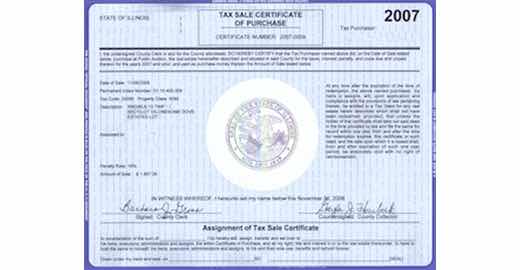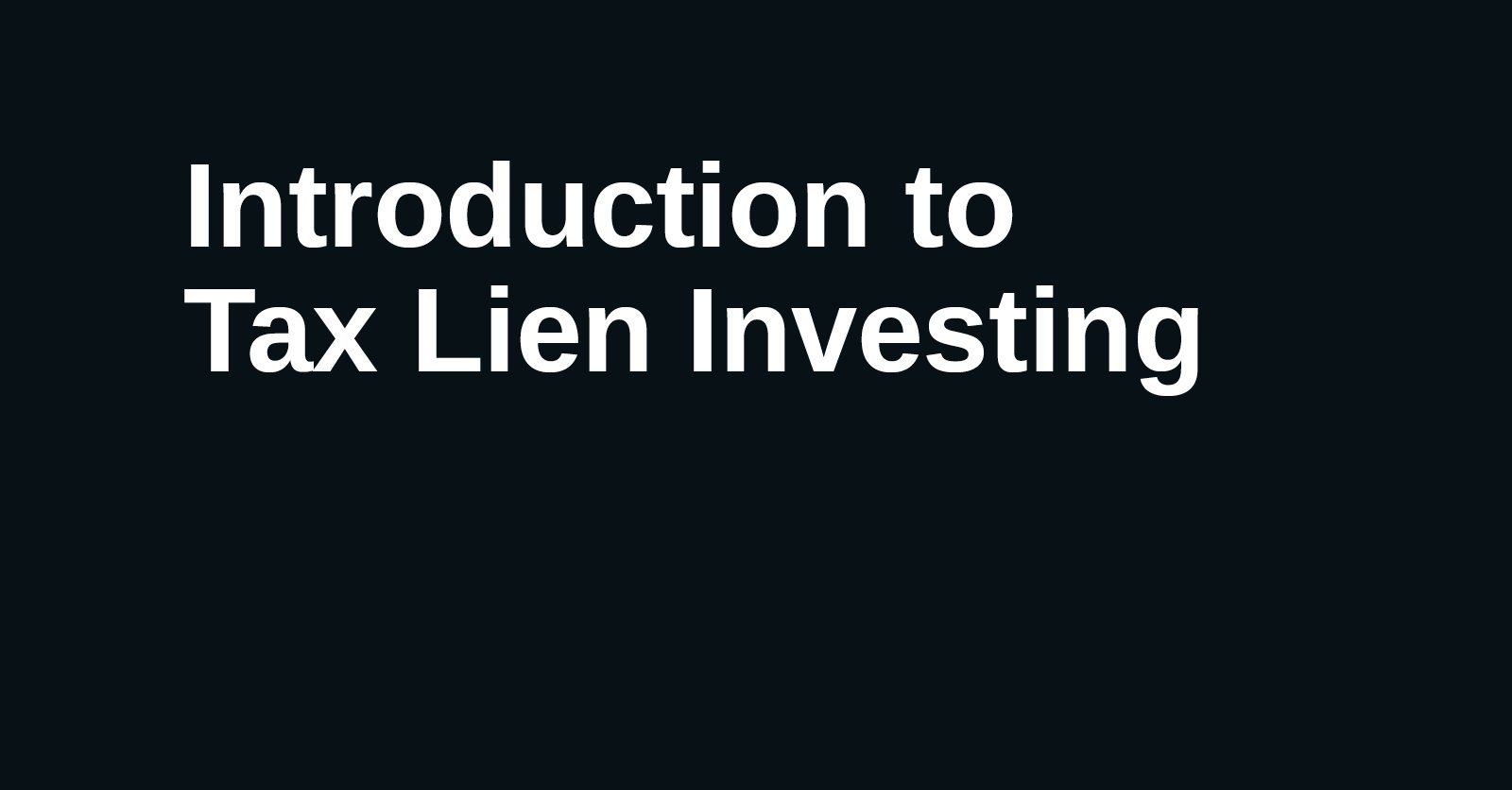All Categories
Featured
Table of Contents
In a lot of cases, you will certainly have to outbid various other capitalists by providing to pay a higher costs (arizona tax lien investing). This costs is normally less than the real amount of tax obligations owed, yet it depends on the financier to make a decision if the risk deserves the collection benefit. In the majority of areas, home tax obligations are around one percent of the building's value

Tax obligation lien financiers make their money on the interest payments they gather when the homeowner repays the taxes they owe. In some areas, these rate of interest are as high as 18 percent, which is more than the typical charge card rates of interest. Property owners can pay what they owe simultaneously, or they can go on a layaway plan varying from one to three years.
Tax Lien Investing Books
In the above example, somebody with an outstanding tax obligation debt of $4k (two years of back tax obligations) would certainly be supplying a tax obligation lien holder with potentially up to $720 in passion payments, functioning with the 18 percent rates of interest we pointed out earlier. One of the best advantages to tax lien financiers is the potential to acquire a new residential or commercial property for their realty portfolio, without having to pay its market worth.

It's a win-win situation for the tax lien investor. There are some cons to tax obligation lien investing.
Once the lien is paid, the investor needs to go on and try to find a brand-new financial investment. Certainly, if the homeowner is still in default, the lien owner will certainly get the home, which might end up being a recurring resource of revenue. A person that buys a tax lien might discover themselves entangled with other liens on the home, specifically if they finish up declaring the building on the occasion that the financial debt goes overdue.
This could bring about great deals of lawful fights, which is why it is necessary to collaborate with legal representatives and tax obligation consultants who comprehend points like act vs title. and can assist with doing due diligence on a property. The laws around tax obligation lien investing (and related issueslike foreclosing on occupants) are not consistent throughout states that supply financiers the capacity to take part in a tax obligation lien sale.
Provided that tax obligation liens are usually cost public auction, competing prospective buyers will certainly bid up the premium and bid down the rate of interest rate that can be gathered on the unpaid taxes. The champion of the public auction will certainly be the real estate financier who is paying the highest possible costs and getting the least expensive rate of interest in return.
Investing In Tax Liens Online
In this vein, tax lien investing is a little more sport-like than traditional passive ways of making revenue. The very first point you'll intend to do is obtain knowledgeable about the area you're taking into consideration in regards to the property market. Keep in mind that one advantage of becoming a lienholder is gathering the residential or commercial property if the financial obligation goes overdue, so you will need to recognize where that building is.
As soon as you have actually identified these details out, you need to contact your neighborhood region treasurer's office to discover when and where the next tax lien public auction is being held. These public auctions are typically held in person, yet in today's day and age, much of have transitioned to online venues.

A lot of regional papers release these lists annually or semiannually. Remember that home taxes are normally one percent of the home worth, but unsettled tax obligations collecting over numerous years might be an extra large amount.
Tax Lien Certificate Investments
it has actually the included perk of getting the property if the financial obligation stays overdue. While it can be a profitable possibility for the financier, it does require some tactical footwork. Renters and homeowner do have lawful securities that make tax lien investing an extra engaged process than just bidding to buy a financial obligation and waiting to accumulate the settlement.
Buying tax liens involves purchasing a legal insurance claim on a residential or commercial property as a result of overdue real estate tax. This approach of investing has acquired popularity due to its possibility for high returns with reasonably low first capital. Tax liens are normally cost public auctions, and the procedure can differ depending upon the place.

Investors choose tax obligation liens for a number of reasons: 1. Reduced Initial Financial investment: Tax obligation lien investing usually needs a little amount of money to start, making it obtainable to a wide array of financiers. Some tax liens can be acquired for just a few hundred dollars. 2. High Returns: The rates of interest on tax liens can be substantially greater than traditional investment returns.
Tax Liens Investing Risks
3. Residential property Purchase: If the homeowner stops working to pay the past due tax obligations and rate of interest within the redemption period, the capitalist may can confiscate and obtain the building. Produce an account online, or call us for further information. When investors acquire a tax obligation lien, they pay the overdue tax obligations on a building and get a tax obligation lien certification.
There are two possible results: 1. Repayment by the Homeowner: The homeowner settles the past due taxes plus interest within a specified duration, and the investor obtains the payment with interest. This is one of the most common result. 2. Repossession: If the building proprietor does not settle the taxes within the redemption period, the investor can launch foreclosure procedures to acquire the residential or commercial property.
The self-directed individual retirement account purchases the lien certification and pays associated fees. Suppose the property proprietor repays the lien, and the profits return to the individual retirement account. If the building is confiscated and marketed, the sale proceeds also go back to the IRA, possibly expanding the retirement savings. Tax obligation Lien: The government offers a lien on the property because of overdue tax obligations.
What Is Tax Lien Real Estate Investing
Tax Act: The government markets the actual action to the property at auction. The winning prospective buyer obtains possession of the building promptly. Some states utilize a hybrid strategy, where a lien may result in an act sale if not paid off. According to the National Tax Obligation Lien Organization (NTLA), 36 states and 2,500 territories within the United States permit the sale of tax obligation liens, while just 31 states permit tax obligation act sales.
Table of Contents
Latest Posts
Houses For Sale For Back Taxes
Tax Property Auctions
Excess Funds From Tax Sale
More
Latest Posts
Houses For Sale For Back Taxes
Tax Property Auctions
Excess Funds From Tax Sale